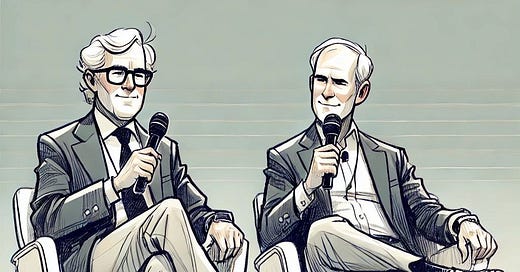Last week, I poked fun at an increasingly familiar group—let’s call them the Nice Guys of Philanthropy. Understandably, they have a lot to say about where institutional philanthropy finds itself right now—and they’ve got plenty of boosters ready to cheer them on for their bold takes. They’re easy to spot: white and about ten years older than me, they gr…
© 2025 Jason Lewis
Substack is the home for great culture




